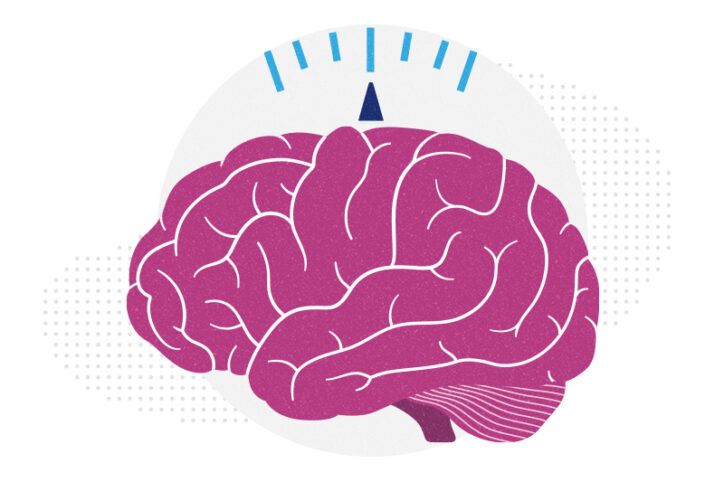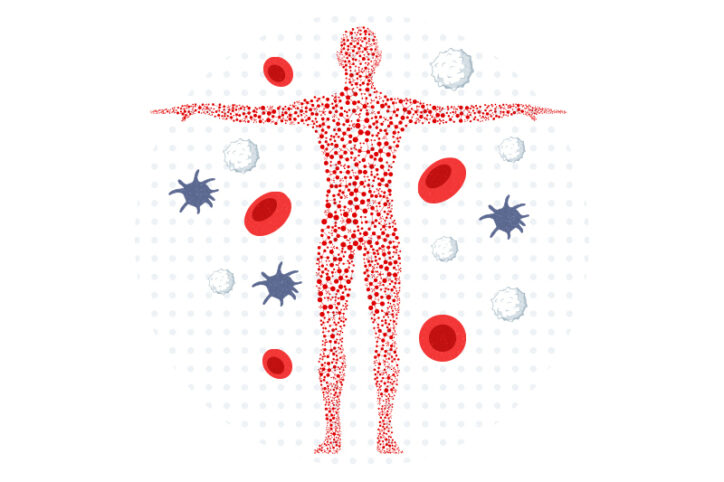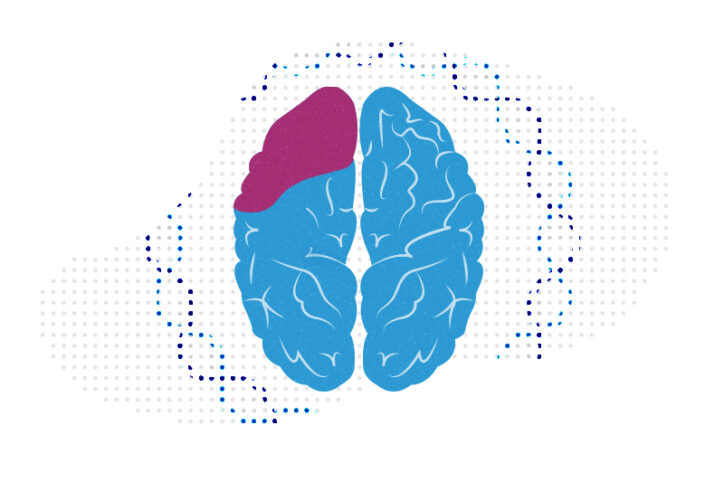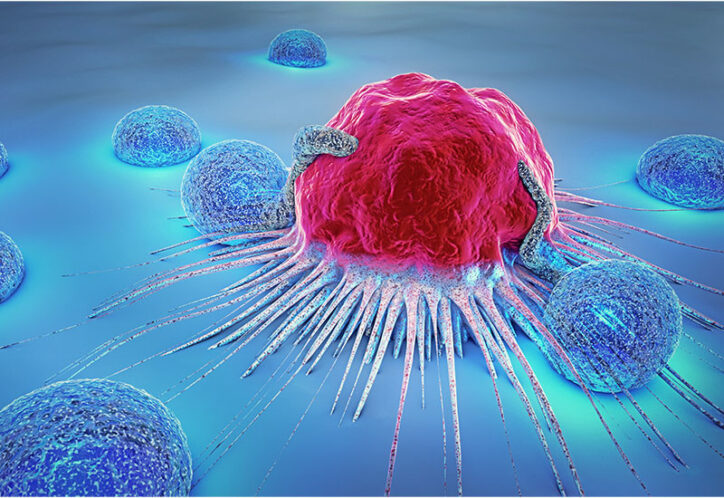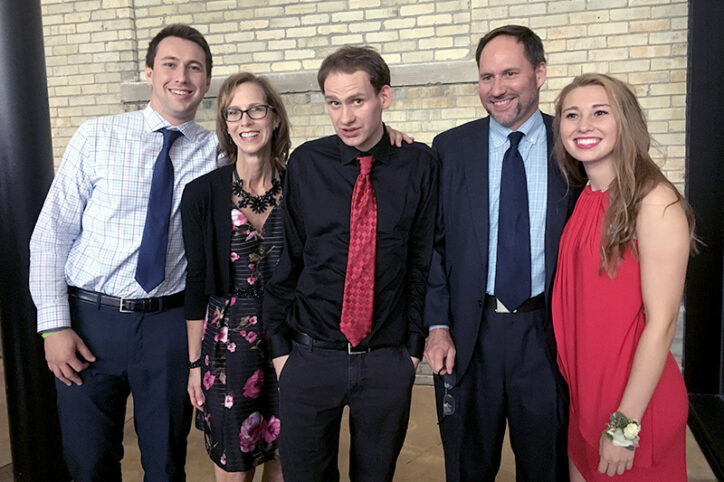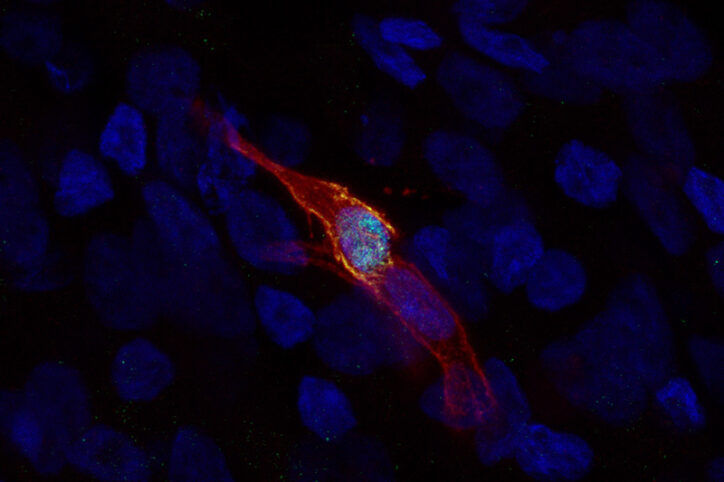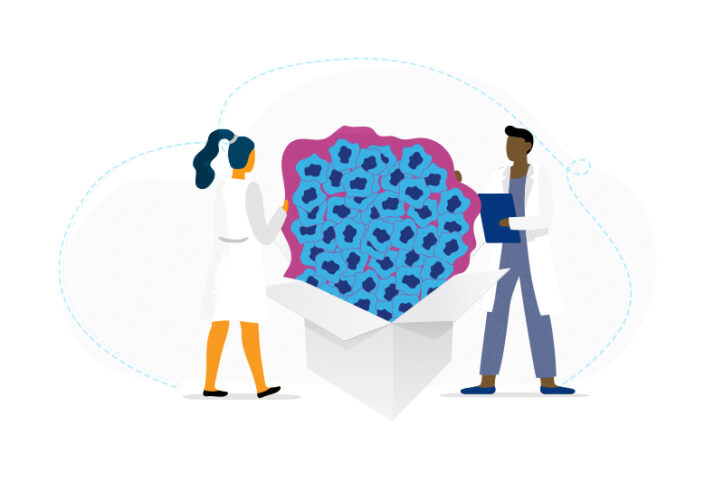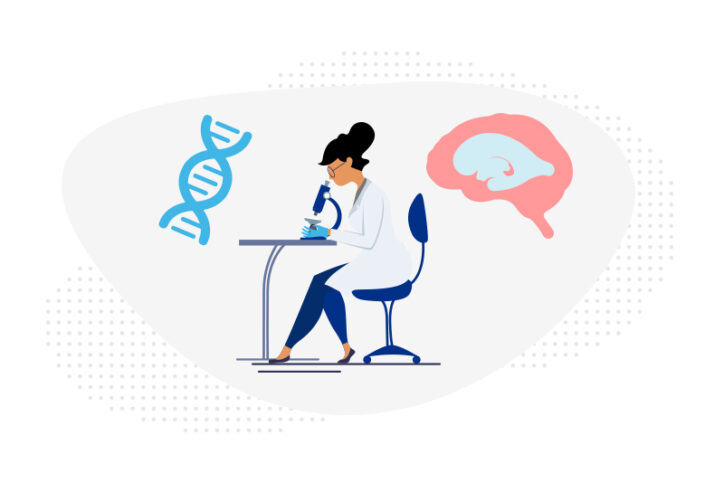Archive for Nancy Fliesler
BMI and the adolescent brain: A concerning connection
We all know that obesity is a growing epidemic in children and adults. A large national study now finds that preteens carrying excess weight have notable differences in cognitive performance, brain structures, and brain circuitry when compared to preteens with normal body-mass index (BMI). Funded by the National Science Foundation’s Harnessing the Data Revolution initiative, ... Read More about BMI and the adolescent brain: A concerning connection
Tagged: adolescent medicine, neuroscience, obesity
Could we make blood anywhere in the body?
Our bodies make blood in a specialized niche — a “nursery” within our bone marrow that nurtures blood stem cells so they can replicate and make different kinds of blood cells. The lab of Leonard Zon, MD, has even shown how blood stem cells, once they settle in the niche, are “cuddled” by nearby cells. ... Read More about Could we make blood anywhere in the body?
Tagged: blood, blood disorder, hematology, stem cell transplant, stem cells
A new cancer mechanism: Failed cellular housekeeping
Cancer can stem from mutations in many different genes. New research from Boston Children’s Hospital and Dana-Farber Cancer Institute pinpoints a gene that, when mutated, causes cancer through a mechanism not before seen: Inability of cells to dispose of their trash, namely defective strands of RNA. This mechanism appears to cut across many different malignancies, ... Read More about A new cancer mechanism: Failed cellular housekeeping
Rethinking cerebral arachnoid cysts through genomics
Cerebral arachnoid cysts are the most common mass-occupying brain lesion in humans. Some cause no noticeable symptoms and may just be incidental findings. Others are quite severe, causing hydrocephalus and potentially nerve damage; these clearly require surgery to drain the cyst fluid and relieve pressure on the brain. But a middle ground sits between these ... Read More about Rethinking cerebral arachnoid cysts through genomics
An unexpected journey reveals a potent way to attack tumors
Research on the effects of prenatal exposure to the Zika virus has yielded an unexpected dividend: a potentially promising way to trigger natural killer (NK) cells to fight cancer. NK cells are first-responder immune cells. When enough of their activating receptors are triggered, they mobilize to kill infected, stressed, or cancerous cells at an early ... Read More about An unexpected journey reveals a potent way to attack tumors
Deep plasma proteomics: Back to the future
Blood plasma is collected from people routinely during clinical care and for research. It is potentially a rich source of protein biomarkers for diagnostic and prognostic purposes, for measuring response to treatment, and for revealing disease biology. Yet identifying such biomarkers in plasma with proteomics, our best available tool, has been a challenge: Ninety-nine percent ... Read More about Deep plasma proteomics: Back to the future
Tagged: biomarkers, blood, coronavirus, diagnostics, proteomics
Conquering a rare metabolic condition: A family, a pediatrician, and two labs join forces
As a newborn, Sam Hoffman never cried or made a sound. His mother, Carolyn, often had to wake him up to feed him. He missed many of his infant milestones. At one visit, his pediatrician tapped his leg and couldn’t get a reflex. A urine test found extremely high levels of 4-hydrobutyric acid or GHB ... Read More about Conquering a rare metabolic condition: A family, a pediatrician, and two labs join forces
Tagged: epilepsy, gene therapy, metabolism, neurology, neuroscience, rare disease, stem cells
Making ionocytes: A step toward cell or gene therapy for cystic fibrosis
Cystic fibrosis transmembrane conductance regulator (CFTR) modulators were a breakthrough for cystic fibrosis, improving the movement of chloride and water and moistening mucus secretions. But these drugs are expensive, don’t work in all patients with cystic fibrosis, and have side effects and interactions with other drugs. People who do respond to CFTR modulators must take ... Read More about Making ionocytes: A step toward cell or gene therapy for cystic fibrosis
Tagged: cell therapy, cystic fibrosis, gene therapy, pulmonology, stem cells
Going out of the box to tackle pancreatic cancer
Pancreatic cancers are deadly and hard to treat, in part because they are so often detected at an advanced stage; overall five-year survival rates are about 11 percent. Two separate labs at Boston Children’s Hospital took out-of-the-box approaches to this difficult cancer, and both uncovered some very promising leads. Wiping out pancreatic tumors’ immune defense ... Read More about Going out of the box to tackle pancreatic cancer
Could gene therapy relieve post-hemorrhagic hydrocephalus?
Premature infants, especially very low birthweight babies, are at risk for intraventricular hemorrhage. A frequent complication of these brain bleeds is hydrocephalus, an accumulation of cerebrospinal fluid (CSF) in the brain ventricles that can gravely disrupt brain development. If hydrocephalus develops, a child may need shunt operations throughout life to manage the fluid buildup. Could ... Read More about Could gene therapy relieve post-hemorrhagic hydrocephalus?


